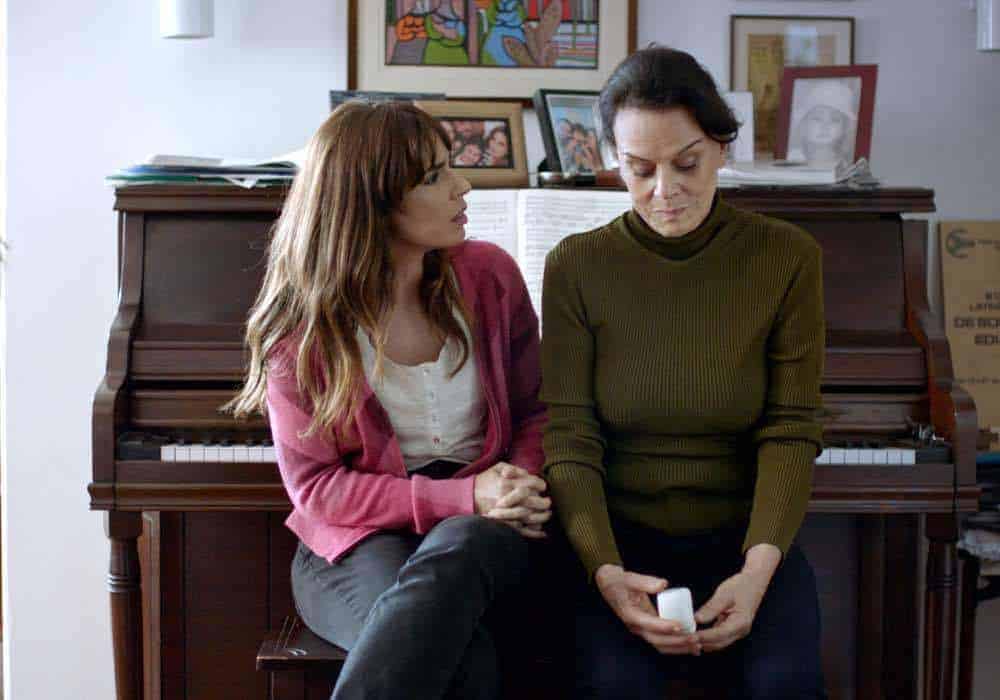After a slow start to the Berlinale film festival, Lais Bodanzky’s Just Like Our Parents emerged as one of the highlights.

For any woman who identifies as a feminist but does not necessarily perceive having children as a life-sentence, being a mother within a decidedly patriarchal society can be a challenge. Set in present-day Sao Paulo, one of the busiest cities in Brazil, Lais Bodanzky’s Just Like Our Parents highlights, with great realism, the way in which the progressive principles we hold about equality can sometimes be difficult to apply in real life.
Maria Ribeiro plays Rosa, a mother of two in her late 30s, who has abandoned her playwriting dreams to support her family with a tedious writing job in a bathroom furniture company. Meanwhile, her husband Dado (Paulo Vilhena) is an environmental activist often absent on travels to save the Amazon forest and its tribes. But his lofty ideals when it comes to the planet do not translate to his skills as a husband and father. In large part because she is a freelancer, Rosa is more or less left alone to care for everything, and Dado doesn’t care to help her in the evenings. Several times, Rosa comes home to Dado ignoring her and watching football; whether his daughters go to bed early doesn’t bother him, because he isn’t the one who has to wake them in the morning.
His cluelessness is all the more frustrating because Bodanzky makes the unfairness of the situation as obvious as possible. By framing the film from Rosa’s perspective, the director emphatically exposes how Rosa has internalized the abhorrent idea that a life of self-effacement is a part of motherhood. Just Like Our Parents traces her struggle towards becoming “the protagonist in her own story” — something which men always are by default, as she herself points out.
[clickToTweet tweet=”Rosa has internalized the abhorrent idea that a life of self-effacement is a part of motherhood.” quote=”Rosa has internalized the abhorrent idea that a life of self-effacement is a part of motherhood.”]
That difficult process is triggered in a most brutal manner, with a series of life-changing revelations that send Rosa’s humdrum life crashing down. When her mother Clarice (Clarisse Abujamra) reveals that she conceived Rosa during an adulterous one-night stand, and that she is going to die from cancer because she always refused to stop smoking, Rosa is furious. Yet it isn’t simply Clarice’s irresponsibility as a mother that makes her so angry. What Rosa cannot stand is her total lack of regret about anything she’s ever done.
Yet faced with the inevitable prospect of her mother’s death, and with increasing difficulties at work and at home (she suspects Dado of cheating on her with a younger woman), Rosa soon decides to act a little selfish — just like her mother. She understands that in order to be free in a society that wants women to remain passive, she will have to ruffle some feathers and make some people unhappy.
[clickToTweet tweet=”Rosa soon decides to act a little selfish — just like her mother. ” quote=”Rosa soon decides to act a little selfish — just like her mother. “]
In Rosa’s case, the situation gets so bad that at a certain point, it feels as though the only way forward for Rosa would be a divorce. Yet one of the film’s great pleasures is the way it resists this basic impulse, offering instead a more positive and progressive definition of freedom. This ambition is hinted at early on in the film with a play Rosa is shown to be writing, about a woman breaking free from the metaphorical chains of the patriarchy. Yet as her anger fades away, her determination to be happier strengthens and she shifts the focus of her play: instead of following the events that lead her character to leave her man behind, she concentrates on the pragmatic implications of that decision in this woman’s life. Freedom is not gained with a dramatic, one-off act only, but needs to be sustained day by day if it is to become a way of life. Instead of having Rosa leave her situation, the film offers the more realistic and inspiring solution of fixing what’s broken.
Rosa realises that freedom is not freedom if it condemns one to being alone. In other words, being free is not the chance to do what one desires without ever hurting others. Rather, freedom is having the liberty to do what one wants, even if it doesn’t always fit into the plans of others. Rosa’s loved ones must grant her this freedom she deserves. And if they do not do it by themselves — if, like Dado, they do not realise that they are depriving her of her autonomy — she must demand that they do. After flirting with adultery and dreaming of a life of hedonism, she confronts Dado with her unhappiness and asks for a fairer arrangement. The film ends with Rosa and her daughters joyously riding their bikes to school, a risk she never would have taken at the start of the film in this city where roads are largely reserved for cars. This sweetly wordless scene subtly shows that Rosa now has the permission — from herself and from her loved ones — to take chances.
Read more: Francis Lee discusses his Sundance Directing Prize Winner God’s Own Country >>

